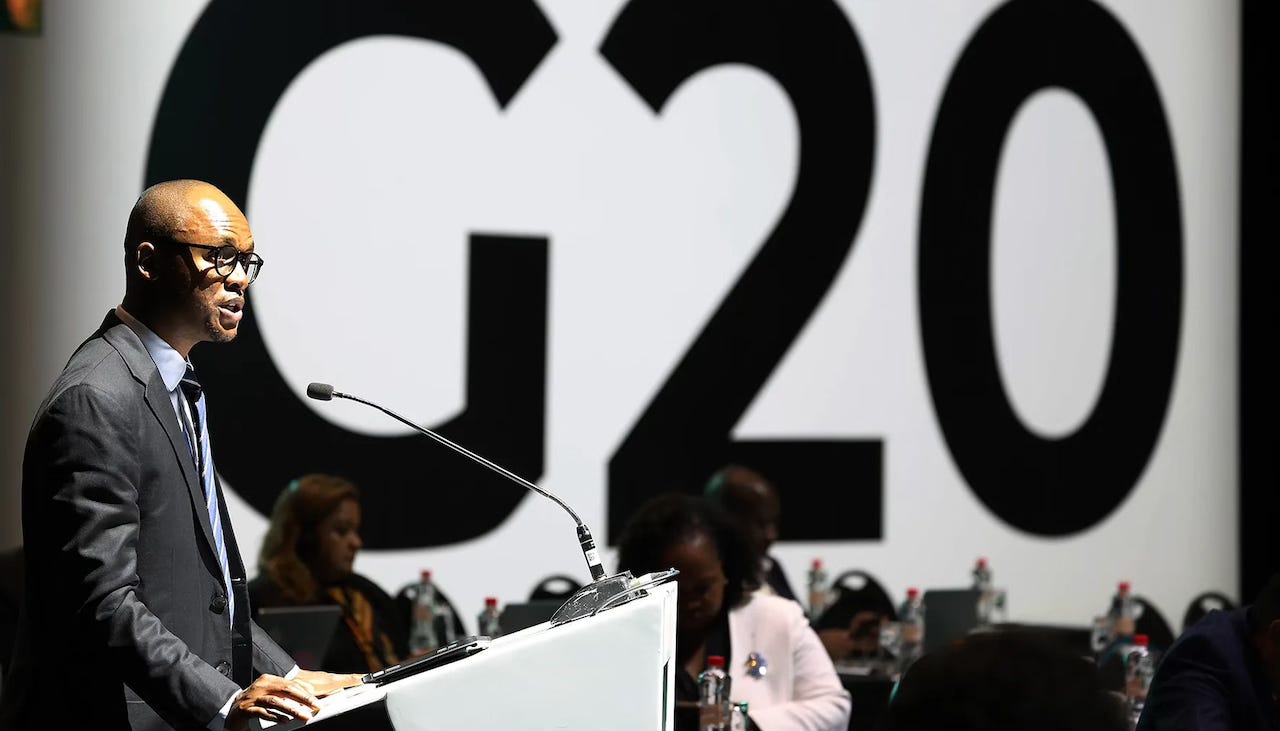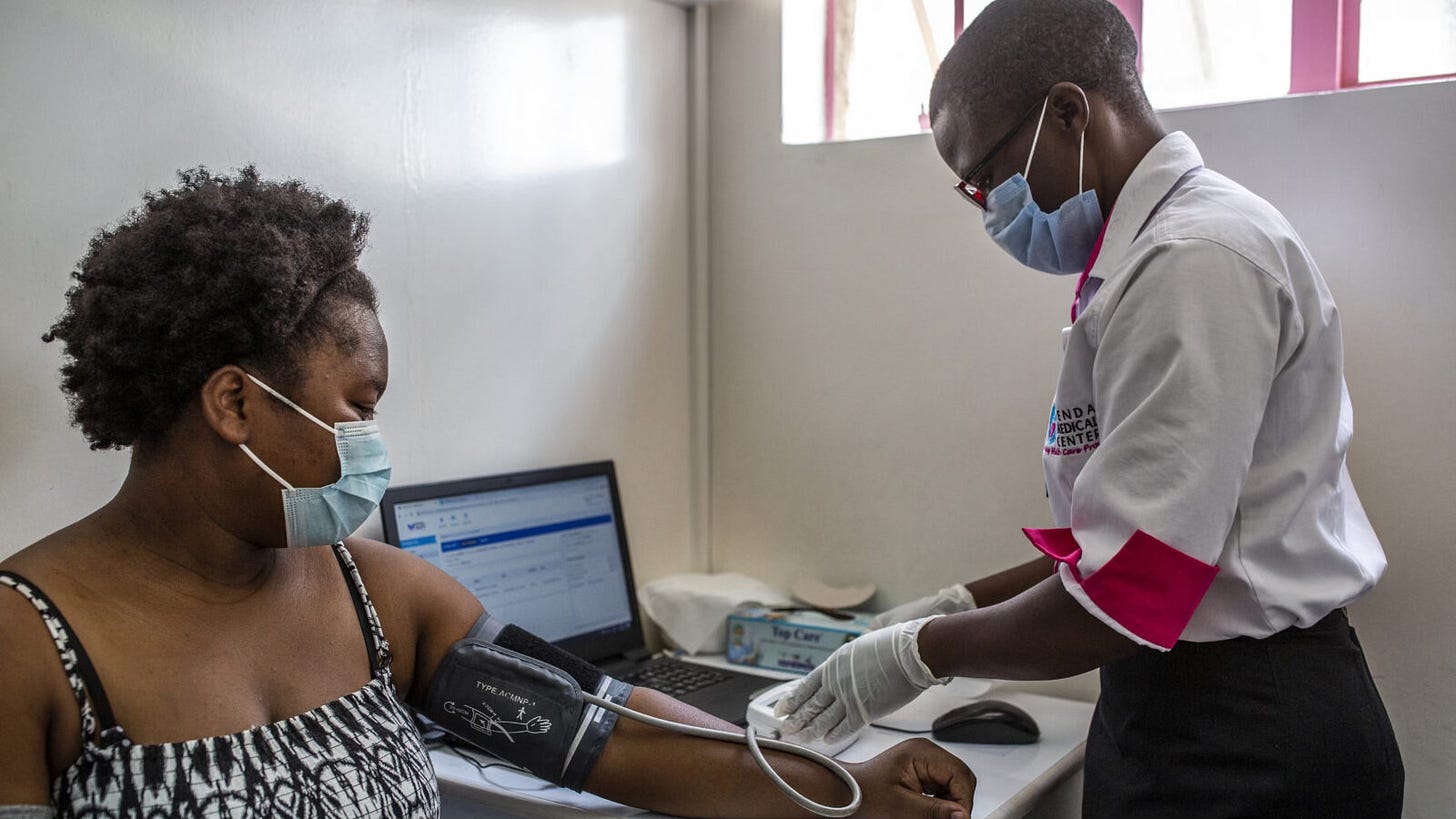SA lifts the lid on AI policy; Morocco opens digital hub
Weekly News Digest ...
Good morning, and welcome to this week’s issue of Africa AI News – Weekly News Digest.
We’re starting to see the shape of how the South African government is looking to shape AI development, drives its growth, but also to put in place sensible governance principles.
As noted in the thorough analysis by Daily Maverick’s Lindsey Schutters, the approach appears to be pleasingly hands-off, with government staying out of the thick of the technology, focusing rather on accelerating the economic advantage, and keeping in check the human cost. What is important is the SA government insists on human oversight and accountability… Minister of Communications and Digital Technologies Solly Malatsi is clear: “Innovation without ethical guardrails can deepen inequality, amplify bias and erode trust.”
How would this play out in legislation? A hint comes from Dumisani Sondlo, governments AI policy lead: “You cannot say the AI made this decision. There must be a human who is held accountable.”
It’s the kind of language that likely has the AI and tech hyperscaler industry grinding its teeth, and quietly revving up the lobbying engine, as this approach would attack the very roots of the “move fast and break things and fix it in post” approach core to their frantic drive to build unchecked AI tech into everything.
We’re still trying to understand the impact of AI on our nations. Does it actually work as promised? Really? Is the return worth the spend? Is it driving inequality?
A sobering report showed that the first quarter of 2025 saw the graduate unemployment rate in South Africa increased by three percentage points over the previous quarter - almost 12% of university graduates are unemployed, – just shy of a similar peak in 2023 that Hannah MacGinty noted in a master’s degree submission at Stellenbosch University (Daily Maverick again).
On with this week’s issue!
/Roger
Policy
South Africa drafts AI policy with ubuntu values
#SouthAfrica #policy — South Africa’s draft National AI Policy, awaiting Cabinet approval and then opens for public comment, stresses human accountability, ethical guardrails and explainability, based on principles of ubuntu (“our common humanity”). The draft AI Policy prioritises humans-in-the-loop decision-making, AI safety infrastructure and data governance. It also proposes accelerators, sandboxes and procurement reforms to support SMMEs. (Daily Maverick)
Zimbabwe moves to align AI laws with global trends
#Zimbabwe #policy — Zimbabwe is developing a legislative framework to regulate artificial intelligence in line with global standards, it announced at the Pan-African Parliament conference in Midrand (G20 event). The government is working with the University of Zimbabwe and has signed an MoU with Bindura University of Science Education to advance technical applications of AI. (ZBC News)
Ghana to regulate AI with new strategy and legislation plan
#Ghana #policy — Deputy Minister Mohammed Adams Sukparu announced Ghana’s first National AI Strategy alongside preparations for an Emerging Technologies Bill at the ENJOY AI 2025 African Open. The strategy highlights AI in healthcare, education, agriculture and security. A 2026 deadline will require government agencies to use AI tools, reinforcing initiatives such as the One Million Coders Programme and Girls-in-ICT. (iAfrica)
Funding
UK backs AI projects for Africa at G20
#Africa #funding #education — The UK Government announced new AI partnerships at G20-linked events, including a £2.75m Evidence Alliance for Social Impact with Canada’s IDRC, Community Jameel, Google.org and J-PAL. The University of Cape Town will also host a new African Hub for AI Safety, Security and Peace, strengthening African research capacity. (GOV.UK)
Hubs, Labs and CoEs
Morocco launches digital hub at UN
#Morocco #AIhubs – Morocco has inaugurated its Digital Hub for Sustainable Development at the UN General Assembly in New York. The Arab-African centre supports Morocco’s Digital 2030 strategy and aims to position the country as a leader in AI and sustainable innovation. (News Ghana)
Zambia announces new AI centre of excellence in Lusaka
#Zambia #CoEs #education — Zambia will establish another AI Centre of Excellence at Katoba Secondary School in Lusaka, said Science and Technology Minister Felix Mutati. The move comes just weeks after a Google-backed facility was launched at the University of Zambia. The initiative, supported by Ecobank, includes AI training for teachers and students alongside a solar energy project. (ITWeb Africa)
Applications
Ethiopia turns to AI for smarter fertiliser use
#Ethiopia #applications #agriculture — A new project is using AI to optimise fertiliser recommendations for Ethiopian farmers. Drawing on 15 years of trial data from the Amhara region, researchers aim to provide site-specific guidance instead of blanket advice. Backed by Kansas State University and local partners, the initiative could cut costs, boost yields and reduce environmental impact. (APNI)
Penda Health study cuts errors, exposes workflow gaps
#Kenya #applications #health — Penda Health and OpenAI’s “AI Consult” tool reduced diagnostic errors by 16% and treatment errors by 13% across nearly 40,000 patient visits in Nairobi. But researchers warn the biggest hurdle is workflow integration: clinicians needed more time, managers tracked ignored safety alerts, and deaths still occurred despite correct warnings. (Stat News)
Huawei deploys AI data centres in Ethiopian banking
#Ethiopia #applications #datacentre — Huawei Digital Power has equipped the Cooperative Bank of Oromia with AI-enabled data centre systems to improve uptime and energy efficiency. The bank, Ethiopia’s third-largest private lender, processed over 3.6 trillion birr (US$24.7bn) in digital transactions last year. Huawei projects a 2.3-year payback period lower costs and greater reliability. (Ecofin Agency)
[ This newsletter was human salted and AI peppered ]



